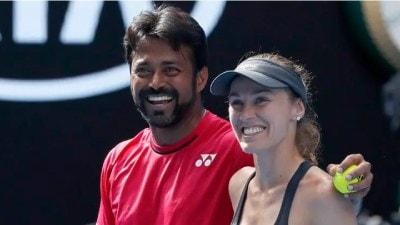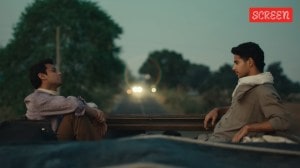Through a glass, darkly
It's so pleasant to sit in the cushioned comfort of your car in winter while the February winds howl their frustration outside the sealed w...

It8217;s so pleasant to sit in the cushioned comfort of your car in winter while the February winds howl their frustration outside the sealed windows. And it8217;s even nicer to watch, from within your snug cocoon, the hapless pedestrians hurrying across the zebra-strip ahead, swathed in shawls and mufflers, heads lowered and shoulders hunched up against the biting cold.
Above them the signal-lamps glow red against the pewter sky. Idly, you tap the steering-wheel with a gloved hand and hum a little tune to yourself, keeping time with the engine, gently ticking over.
So deep is your reverie that it is a while before you become aware of someone at the window. You look up and see a tousle-haired young boy wrapped in a tattered grey blanket that barely covers his knees. Now a thin wrist emerges from beneath the blanket, palm outstretched; dark hooded eyes meet yours, an eternity passes. And then with an effort you turn away and stare longingly at the red lights, willing them to change. Your mind is in turmoil. Don8217;t tip the little scoundrels, a familiar voice intones.
Encourage his begging, and you8217;ll surely destroy him, ruin any chance he has of making something of his life. Ignore him! It is the voice of 50 years of received wisdom, passed on unquestioned down the generations. A voice from a time when the dams, the power plants and the steel mills were coming up, when it was tacitly assumed that every man, woman and child would pull his or her weight in the national interest, to build a better future for the children of tomorrow.
But now another voice intervenes. Behold the rewards of 50 years of Independence, it mocks. Observe the results of all your glorious economic planning, your precious schemes for social betterment, your pious pontifications on human development and children8217;s rights! Recognise reality in that shivering bundle of skin and bones outside your window the transparent, insulated window behind which, safely and self-righteously, you and your middle-class kin cower from the truth8230;
Abruptly, the engine stutters and stalls. You curse silently, twist the key: the engine chuckles throatily and falls silent, just as the lights turn green. There is a thunderous roar all around, the view ahead disappears in clouds of grey smoke, the vehicles behind you honk in fury. Dementedly, you twist the key again and again, pump the pedals, strike the wheel in despair, and lo! Suddenly the car is moving, slowly at first but steadily gathering momentum. A glance at the mirror tells you why the urchin, now joined by an equally emaciated associate, is pushing you out of trouble.
A turn of the key, some quick work on the clutch pedal, and the engine coughs apologetically and settles to a steady murmur. You turn and smile gratefully at the urchin, who is back at your window. His eyes are dark, fathomless pools: but as you watch he raises his hand and splays his fingers. The message is clear. Your smile fades away, anger and disillusionment well in you as you grope inside your pockets and find the requisite coins. You roll down the window and gasp as the cold air hits you like a bunched fist. The urchin scoops up the coins, grins and salutes. You ignore him, hurriedly roll up the glass and drive off.
8220;Sickening,8221; you tell your wife later. 8220;Five rupees! I mean8230;in the old days the kid would8217;ve done it out of sheer goodwill, basic decency. He wouln8217;t have put a price on it. Well, looks like even beggars nowadays set a price on everything. It8217;s all thanks to liberalization!8221;
8220;No, no,8221; she replied softly. 8220;The reason8217;s still called poverty.8221;
- 01
- 02
- 03
- 04
- 05































